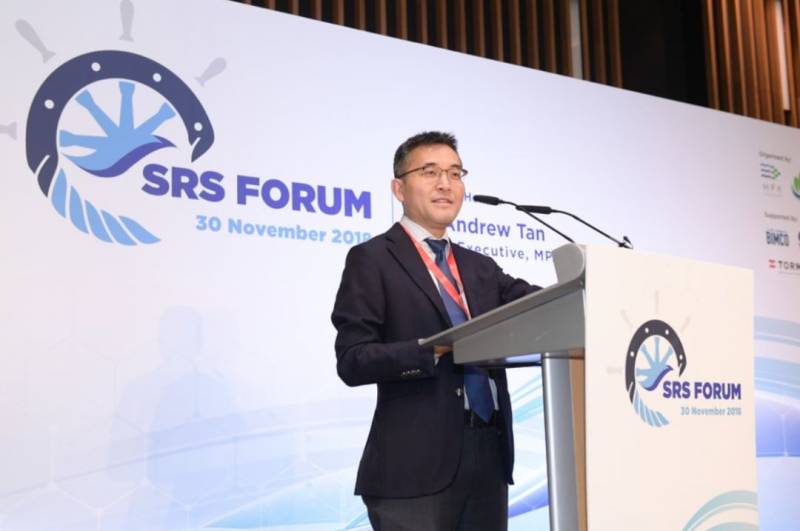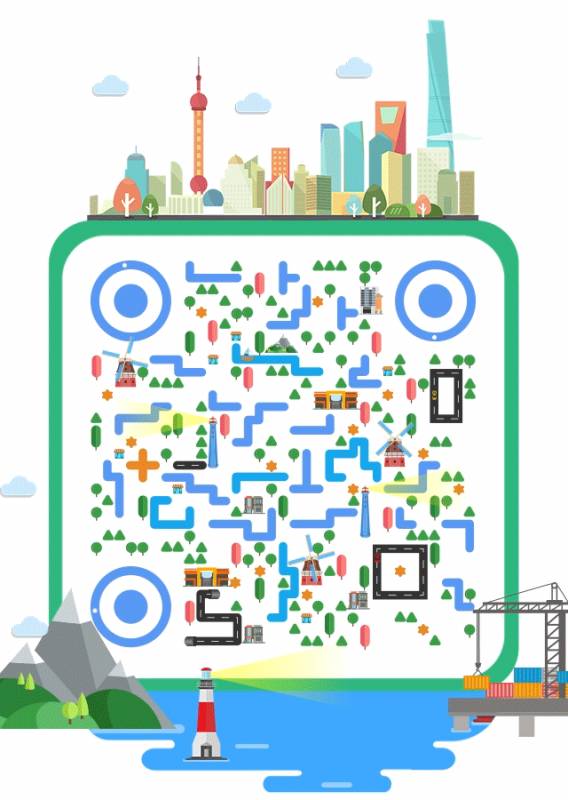Seaway海事新闻12月3日讯,新加坡海事港务局(MPA)上周五(11月30日)表示,从2020年1月1日开始禁止船舶排放开环洗涤塔的“废水”。
开环洗涤器在新加坡这个世界级的燃油供应中心被禁止,对于已经在废气净化系统上投入数百万美元的船东来说,这无疑是一个挫折。
此举旨在帮助这个世界上最繁忙的港口应对2020年生效的IMO新规,并促使船舶使用更加清洁的燃料。
“为了保护海洋环境并确保港口水域的清洁,将禁止船舶把开环洗涤器的洗涤水排放到新加坡水域。”新加坡港务局(MPA)CEO Andrew Tan在一次活动中表示。

“装有混合洗涤器的船舶将被要求切换到闭环运行模式,”Andrew Tan说,新加坡将提供设施收集这些因运行洗涤器而产生的废弃物。
关于新加坡港务局(MPA)这段有关开放式洗涤塔废水排放的原文是:
Preparing SRS for the IMO 2020 Fuel Oil Sulphur Limit
7 Let me now touch on the impending environmental regulations affecting the industry, in particular the IMO 2020 Fuel Oil Sulphur Limit, and how we are working with our stakeholders to be prepared for its implementation.
8 As you are aware, come 1st January 2020, all ships are required to use compliant fuel oil of not more than 0.5 per cent sulphur content. In addition, ships are not allowed to carry non-compliant fuel oil from 1st March 2020. The use and carriage ban of non-compliant fuel do not apply to ships that are fitted with abatement technology such as scrubbers or granted with exemptions for trial of such technology.
9 To help prepare the industry for the IMO 2020 Fuel Oil Sulphur Limit, we have developed a comprehensive action plan. Working together with the Singapore Shipping Association (SSA), we have published two technical guidance booklets, one for Singapore-registered ships and another one for ships calling at the Port of Singapore [Show booklets]. The booklets provide detailed guidance and best practices for ships to comply with the IMO 2020 regulations, as well as the requirements and procedures that ships have to abide by when calling at Singapore. Hardcopy of these guidance booklets are available here today. You may also download the electronic versions from our MPA website.
10 In addition to these guidance booklets, we will be issuing another set of guidance by the second quarter of 2019, detailing Singapore’s readiness for the IMO 2020 regulations, covering topics such as fuel availability in Singapore, reception facilities for scrubber residues, and enforcement measures, bearing in mind the need to ensure there is no disruptive impact to shipping, which we are highly conscious of.
11 We will also be organising various engagement platforms to address any concerns that the industry may have in the run up to 2020 and beyond, and to update you of any new developments. Next year, we will hold a technical workshop jointly with SSA for SRS operators, and also an MPA-SSA industry panel discussion. Additionally, we will be engaging like-minded ports and maritime administrations to share best practices in the implementation of this regulation. This topic will also be further discussed at SRS Forum 2019.
12 As a major bunkering hub, we are working closely with our bunker suppliers to ensure that there will be adequate supply of compliant fuel oil in Singapore well in advance of 2020. We will produce a list of suppliers that are able to supply compliant fuel by the middle of next year.
13 To protect the marine environment and ensure that the port waters are clean, the discharge of wash water from open-loop exhaust gas scrubbers in Singapore port waters will be prohibited. Ships fitted with open-loop scrubbers calling at Singapore will be required to use compliant fuel. Ships fitted with hybrid scrubbers will be required to switch to the closed-loop mode of operation. Singapore, as a party to MARPOL Annex VI, will be providing reception facilities for the collection of residues generated from the operation of scrubbers.
14 SRS operators are encouraged to plan ahead and ensure compliance with the IMO 2020 regulations in order to safeguard Singapore’s Quality Flag status.
就目前的情况来看,新加坡港口作为全球船舶燃料主要加油的中心,当地港务局将紧密和燃料加注供应商联系,并在明年发布一份合规的加油商名单,同时,对安装开放式的脱硫设施的船舶,MPA要求其按照IMO要求切换符合规定的燃料油,对安装混合式的脱硫设施船舶,要求其切换至闭合式。

部分网友如上表达了自己的观点。
对此,国内的部分脱硫设备厂家和一些业内人士也纷纷表达了自己的看法与看法。
上海蓝魂的相关人士表示,业内需要顺应法规,各个国家设立自己的控制排放区是迟早的事情。对于船东是否会因此不考虑脱硫塔而采用低硫油,该人士表示,毕竟船舶是在全球航行,不会因为一个国家设立了法规就全部使用低硫油,相反,法规越严格,市场应该更火爆。
上海汇舸的相关人士表示,新加坡港口并不是第一个对脱硫污水排放有规定的区域,用混合的或换油就可以了,其实船东早就在考虑了。关键需要解决公海排放脱硫污水的情况,并且很多船东在选择安装脱硫塔之前就已经考虑到了类似新加坡港口这种严格的排放规定。而他们认为脱硫塔安装的市场才刚刚开始起步。
江苏优拿大的相关人士表示,对新加坡港口的新规的其实是情理之中,意料之外。严禁湿法外排水是情理之中,新加坡宣布是意料之外,本来他们估计时挪威或芬兰或北美在2019年初宣布。很简单,海洋经济的体量远远大于航运经济的体量。现在不可能在出现头疼医头,脚痛医脚的事情。将大量含有有害物质的废水排放到海洋,对全球经济、环境、大气等都是不可逆转的损伤。该人士认为,脱硫本来就不用采用的技术,只是因为政策的突发性导致了航运公司的盲目性,对于船东来说,脱硫是不产生任何经济效益的,因此选用标准一定是:便宜、合规。因此,相关政府机构和第三方必须切实看到危害从而从源头上给予制止。否则,今天省下来1美元,明天要花费千倍甚至万倍的代价都无法修复海洋生态环境。
DNVGL船级社有关人士表示,目前全球已经有一些对污水排放采取更加严格对待,即便是闭合式也不会考虑,目前主要需要考虑的是在大洋航行过程中排污的问题解决,并且水域的淡海水选择上,也会对洗涤塔的形式有所要求,近期DNVGL也在对环境与船舶航行的相关问题有一个深入的探讨。
有挪威船东人士表示,在脱硫塔的问题上,总能看到一些奇葩的言论和观点,尤其是标榜著道德至上的人士,总想扳倒脱硫塔、尤其是开放式脱硫塔的主张派。曾几何时,航运业的道德基准怎么提高得那么明显?不得不怀疑他们对IMO 2020的实施背景的了解,片面和幼稚地认为这是一个简单的污染源转移。然而,IMO 2020的出台背景中一项最为重要的因素是人类受大气污染而引发的疾患率上升,从而要采取措施降低大气污染。开式脱硫塔确实将部分污染源转移到了海洋,但巨大的海洋体所附属的自净功能(化学自净)可以将这些洗涤水的排放忽略不计。或许在消除人类健康威胁和海洋环境威胁二选一时,理智的选择是消灭人类而守住海洋环境吗?有机的发展是不断提升开发脱硫装置的技术,有效配置硫排放物回收体系和网络,这是一个发展的过程。安装脱硫塔的确有商业驱动的因素,但不至于上升到道德层面。如果真要以道德基准来衡量,那么道德主张派从现在开始就应该放弃HFO,而选用0.1%硫含量的低硫轻柴油或者LNG动力,哪怕市场开始供应0.5%硫含量的Compliant Fuel时。用道德绑架航运时,那么航运业离死期也就不太遥远了。
对此,你是怎么看待未来船舶在脱硫塔安装以及低硫油二者中如何选择的,以及开放式、闭合式、混合式,或者其他形式的脱硫设备的观点,欢迎留言区讨论。
—END—

